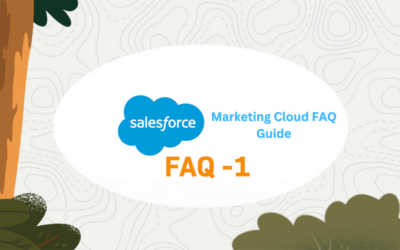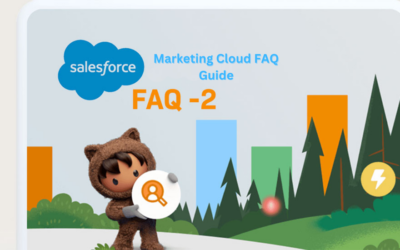In the ever-evolving landscape of content management and customer relationship management, the HubSpot CMS Hub stands out as a versatile and powerful solution that seamlessly integrates these critical aspects of digital business. As businesses strive for a robust online presence and meaningful customer interactions, mastering the intricacies of HubSpot CMS Hub becomes paramount. In this exhaustive guide, we delve into the core elements that constitute the backbone of successful HubSpot CMS Hub utilization, answering the top 20 interview questions comprehensively. From fundamental aspects such as website customization and SEO optimization to advanced features like HubL templating, e-commerce integration, and community building, this guide is designed to be a go-to resource for both beginners seeking to grasp the basics and seasoned users aiming to elevate their proficiency. As the digital realm continues to demand adaptive and user-centric strategies, a thorough understanding of HubSpot CMS Hub becomes not only a practical necessity for businesses but also a gateway to unlocking the full potential of personalized content, streamlined workflows, and data-driven decision-making.
Navigating the intricacies of HubSpot CMS Hub requires more than just technical know-how; it demands a strategic approach to harnessing its capabilities for marketing, sales, and overall business growth. In this guide, we not only aim to answer specific questions but also to provide insights that empower users to optimize their websites, enhance customer experiences, and achieve their organizational objectives. Whether you’re a marketer, developer, or business owner, the knowledge encapsulated in these pages serves as a roadmap to mastering the nuances of HubSpot CMS Hub. If you need assistance with Salesforce CRM setup and optimization, companies like CRM Force can provide valuable expertise and support.
1- How can you ensure regular backups and updates for a website hosted on HubSpot CMS Hub?
Answer: Ensuring regular backups and updates for a website hosted on HubSpot CMS Hub is crucial for maintaining reliability and security. HubSpot automatically handles backups and updates for the platform itself. However, for additional peace of mind, regularly export and archive website content. Schedule regular content backups and store them securely. HubSpot manages system updates, but for additional plugins or integrations, monitor for updates and apply them promptly. This proactive approach safeguards your website against data loss and ensures it remains up-to-date with the latest features and security patches.
2- What role does the HubDB play in data management within HubSpot CMS Hub?
Answer: HubDB is a powerful database feature in HubSpot CMS Hub that allows for the dynamic storage and retrieval of structured data. It serves as a flexible solution for managing dynamic content on websites. Users can create tables to store and organize data, such as product information or team member details. HubDB can be integrated into website templates, enabling the display of dynamic content based on user interactions. This feature simplifies data management, enhances content personalization, and provides a scalable solution for websites with changing data needs.
3- What is the concept of smart content and how it can be implemented in HubSpot CMS Hub?
Answer: Smart content in HubSpot CMS Hub refers to dynamically personalized content that adapts based on the characteristics and behavior of the website visitor. This feature allows you to create tailored experiences for different audience segments. Smart content can be implemented through the use of smart modules and dynamic content rules. For example, you can display different messaging or offers based on a visitor’s location, lifecycle stage, or past interactions with your website. By leveraging smart content, marketers can enhance engagement, deliver more relevant information, and ultimately drive conversions.
4- How can you leverage HubSpot workflows to automate marketing and sales processes?
Answer: HubSpot workflows are a robust automation tool that streamlines marketing and sales processes. To leverage workflows effectively, define clear objectives and identify repetitive tasks that can be automated. Create workflows for lead nurturing, email campaigns, and customer onboarding. Set up triggers based on user behavior or specific criteria in the CRM. Implement if/then branches to personalize the user journey. Regularly monitor and optimize workflows for maximum efficiency. HubSpot workflows empower teams to automate routine tasks, save time, and ensure consistent and personalized interactions with leads and customers.
5- How do you stay updated with the latest features and updates in HubSpot CMS Hub?
Answer: Staying updated with the latest features and updates in HubSpot CMS Hub involves active participation in the HubSpot community and regular engagement with official resources. Subscribe to the HubSpot blog, follow HubSpot on social media, and join relevant forums. Attend HubSpot Academy courses and webinars to gain insights into new features. Actively participate in the HubSpot Community, where users share experiences and best practices. By staying connected and engaging with these resources, you’ll be well-informed about the latest developments, ensuring that you can leverage new features to enhance your website and marketing strategies.
6- How can HubSpot CMS Hub be used to create dynamic and personalized content for different audience segments?
Answer: HubSpot CMS Hub facilitates the creation of dynamic and personalized content through smart content modules and rules. Identify key audience segments based on factors like location, buyer persona, or lifecycle stage. Create variations of content within your modules to cater to these segments. Define rules that dynamically display the appropriate content based on visitor characteristics. For example, display different messaging to first-time visitors compared to returning customers. This approach enhances user engagement by delivering content that resonates with each audience segment, improving the overall customer experience.
7- What is the role of HubSpot CMS Hub in mapping and enhancing the customer journey?
Answer: HubSpot CMS Hub plays a pivotal role in mapping and enhancing the customer journey by providing tools to create a seamless and personalized experience. Utilize the platform to map out the customer journey stages, from awareness to conversion. Implement smart content, personalized emails, and targeted CTAs at each stage. Integrate with HubSpot CRM to align marketing and sales efforts, ensuring a cohesive experience. Regularly analyze customer interactions through HubSpot analytics to identify touchpoints that require optimization. HubSpot CMS Hub empowers businesses to craft a customer journey that fosters engagement and loyalty.
8- How can custom modules in HubSpot CMS Hub enhance website functionality?
Answer: Custom modules in HubSpot CMS Hub offer a tailored approach to website functionality. They allow developers to create reusable components that can be easily integrated into different pages. Custom modules enhance website functionality by providing unique features or interactive elements. For example, a custom module could be designed for advanced forms, dynamic pricing displays, or interactive charts. This level of customization ensures that the website meets specific business needs, delivering a personalized and engaging user experience.
9- What is the role of HubL in customizing templates in HubSpot CMS Hub?
Answer: HubL (HubSpot Markup Language) is a powerful templating language used in HubSpot CMS Hub. It allows developers to customize templates by adding dynamic content, conditions, and logic. With HubL, you can create dynamic templates that adapt to user interactions or data from the CRM. It enables the creation of reusable components and templates, promoting consistency across the website. HubL’s flexibility empowers developers to implement complex logic and create personalized user experiences, making it a key tool for advanced customization in HubSpot CMS Hub.
10- How does HubSpot CMS Hub support multi-language content on websites?
Answer: HubSpot CMS Hub provides robust support for multi-language content through its built-in content translation features. Content creators can create variations of pages, blog posts, and other content for different languages. HubSpot automatically manages the language-specific URLs, ensuring proper indexing by search engines. Users can switch between language versions seamlessly, and HubSpot’s content management system ensures that the translations are easily manageable within the same platform. This feature simplifies the process of creating and managing multi-language content, making it accessible for businesses with a global audience.
11- How can HubSpot CMS Hub be integrated with e-commerce platforms for a seamless online shopping experience?
Answer: HubSpot CMS Hub can be integrated with e-commerce platforms for a seamless online shopping experience. By integrating with popular e-commerce systems like Shopify or Magento, HubSpot can pull in product information, order history, and customer data. This integration ensures that marketing efforts are aligned with sales data, allowing for personalized marketing campaigns based on customer purchase history. HubSpot also supports features like abandoned cart recovery and personalized product recommendations, contributing to an enhanced and cohesive online shopping experience.
12- What is the role of HubSpot CMS Hub in optimizing product pages for e-commerce websites?
Answer: HubSpot CMS Hub plays a crucial role in optimizing product pages for e-commerce websites. The platform allows for the creation of visually appealing and informative product pages through its customizable templates. Features like smart content enable dynamic displays based on user behavior or segmentation. Integration with the CRM ensures that product recommendations align with customer preferences. Additionally, HubSpot’s SEO tools can be leveraged to optimize product page content for search engines, contributing to improved visibility and organic traffic for e-commerce websites.
13- How does HubSpot CMS Hub support accessibility and inclusivity in website design?
Answer: HubSpot CMS Hub places a strong emphasis on accessibility and inclusivity in website design. The platform provides tools for creating accessible content, such as image alt text, descriptive link text, and proper heading structures. HubSpot’s design manager allows developers to create responsive designs that accommodate users with different devices and screen sizes. The platform also promotes content readability, ensuring that users with diverse needs can easily consume information. By following best practices in design and content creation, HubSpot CMS Hub contributes to a positive and inclusive user experience for all website visitors.
14- What is the importance of testing websites for accessibility and how it can be done in HubSpot CMS Hub?
Answer: Testing websites for accessibility is crucial to ensure that all users, including those with disabilities, can access and interact with content. HubSpot CMS Hub supports accessibility testing through various tools and practices. Use online accessibility checkers to review page elements, such as images, forms, and links, for compliance with accessibility standards. Leverage browser extensions that simulate the experience of users with disabilities. Conduct manual testing with screen readers to ensure a seamless experience for visually impaired users. Regularly perform accessibility audits to identify and address any issues, ensuring that your website remains inclusive and accessible to all.
15- How can marketing automation workflows in HubSpot CMS Hub enhance lead nurturing?
Answer: Marketing automation workflows in HubSpot CMS Hub are instrumental in enhancing lead nurturing. Create workflows that automatically engage leads based on their interactions with your website. For example, trigger emails with relevant content when a lead downloads a whitepaper or visits specific pages. Utilize lead scoring to prioritize and segment leads for targeted campaigns. Incorporate personalized content into workflows to tailor the user experience. By automating these processes, marketing teams can nurture leads efficiently, provide timely and relevant information, and move leads through the sales funnel effectively.
16- How can HubSpot CMS Hub contribute to the measurement of marketing ROI?
Answer: HubSpot CMS Hub contributes significantly to the measurement of marketing ROI through its robust analytics and reporting features. By tracking key metrics such as website traffic, conversion rates, and lead generation within the platform, marketers can quantify the impact of their efforts. Integration with HubSpot CRM ensures that marketing data aligns with sales outcomes, providing a holistic view of the customer journey. HubSpot’s attribution reporting further assists in understanding the contribution of various touchpoints in the conversion process. By leveraging these tools, marketers can accurately measure and demonstrate the return on investment for their marketing activities.
17- How can HubSpot CMS Hub be utilized for effective social media integration?
Answer: HubSpot CMS Hub offers robust features for social media integration to enhance brand visibility and engagement. The platform allows users to schedule and publish social media posts directly from the dashboard, ensuring a consistent and coordinated content strategy. Social media sharing options can be seamlessly integrated into blog posts and landing pages, encouraging visitors to share content across various platforms. Additionally, HubSpot’s social media monitoring tools enable users to track engagement, mentions, and comments, providing valuable insights for refining social media strategies.
18- What the role of social media analytics in measuring the impact of content shared through HubSpot CMS Hub?
Answer: Social media analytics play a crucial role in measuring the impact of content shared through HubSpot CMS Hub. By utilizing HubSpot’s social media analytics tools, marketers can track key metrics such as post reach, engagement, and click-through rates. These insights provide a comprehensive understanding of how content resonates with the audience on different social platforms. Analyzing social media data allows marketers to identify top-performing content, optimize posting times, and refine their social media strategies for maximum impact and audience engagement.
19- How can HubSpot CMS Hub contribute to effective lead generation strategies?
Answer: HubSpot CMS Hub is instrumental in executing effective lead generation strategies. The platform enables the creation of optimized landing pages with user-friendly forms to capture lead information. Utilize HubSpot’s SEO tools to enhance the visibility of lead-generation content. Implement smart CTAs to dynamically adapt calls-to-action based on user behavior. Integration with HubSpot CRM ensures seamless lead management, allowing marketers to nurture leads effectively through personalized campaigns. HubSpot’s analytics provide insights into lead interactions, facilitating data-driven decisions for continuous improvement in lead generation efforts.
20- How can HubSpot CMS Hub be leveraged to build and engage with online communities?
Answer: HubSpot CMS Hub provides features that support the building and engagement of online communities. Utilize the blog and forum functionalities to create a space for community discussions. Implement user-friendly commenting systems to encourage community interaction on blog posts and other content. HubSpot’s social media integration enables seamless sharing of community content across different platforms, expanding reach. Features like personalized content and email newsletters can be employed to nurture community members and keep them engaged. By fostering an active and inclusive community environment, HubSpot CMS Hub contributes to building brand loyalty and customer advocacy.
Conclusion
In conclusion, this comprehensive exploration of HubSpot CMS Hub has been a journey into the heart of effective content management, customer relationship building, and digital excellence. As we conclude this guide, it’s essential to reflect on the wealth of insights shared and the proficiency gained in navigating the nuances of HubSpot CMS Hub. The platform, with its myriad features and strategic capabilities, serves as a linchpin for businesses aiming to not only survive but thrive in the digital landscape. Our focus on the top 40 interview questions has not only provided answers but fostered a deep understanding of how each facet of HubSpot CMS Hub contributes to a holistic digital strategy. As businesses continue to evolve and adapt to changing landscapes, this guide stands as a testament to the transformative potential embedded within HubSpot CMS Hub. Moving forward, may your journey with this CRM FAQ Guide be a continuous exploration, unlocking new possibilities and driving success in the ever-evolving digital realm.
In essence, this CRM FAQ Guide serves as a compass, guiding users through the intricacies of HubSpot CMS Hub, enabling them to harness its power for strategic digital success. As we conclude our journey through the top 20 interview questions, it’s evident that HubSpot CMS Hub is not merely a tool but a dynamic force that empowers businesses to create, connect, and captivate their audiences. The guide has been crafted to instill not only technical proficiency but also a strategic mindset, emphasizing the role of HubSpot CMS Hub in shaping the digital landscape. Whether you’re a marketer aiming for more impactful campaigns, a developer seeking advanced customization, or a business owner navigating digital transformation, the insights gleaned from this guide are meant to be a catalyst for ongoing success with HubSpot CMS Hub. To learn more about how CRM Force can assist you in recruiting top CRM talent and optimizing your CRM strategies for successful drip campaigns, contact us today. Together, let’s maximize your customer engagement Contact Us today.





